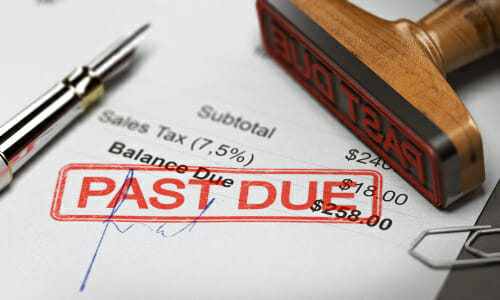Debt is one of the last things you want to worry about when a loved one passes, but it must be done. Things like credit card debt, medical bills, mortgages, and other amounts owed must be reconciled, even after the person who acquired them is no longer alive, and this may raise a lot of questions. Who is responsible for these debts? Will the deceased’s home be taken to repay the debts? If these are questions that you have, read on.
Who is Responsible For a Deceased’s Debt?
There are two kinds of debt—secured and unsecured. Secured debts are those in which an asset is collateral—for example, a mortgage on a house or a car loan. If those debts are not paid, the asset can be repossessed. Unsecured debts are those which personal or are not related to any specific asset—for example, medical bills and credit card bills. For the most part, a family member is not personally responsible for any debts of their deceased relative—secured or unsecured– unless they cosigned on the loan or credit card, or otherwise agreed to be responsible for the debt. However, the deceased’s assets could be at risk.
With secured debts, such as a mortgage or car loan, the Personal Representative of an estate will want to make payments on the debt until the property is sold or passes to a beneficiary, unless the property is going to be abandoned (for example, if the amount of the mortgage or car loan is more than the value of the property.) The Personal Representative should also pay ongoing bills for the property, such as taxes, insurance, utilities, etc.
For unsecured debts, the credit card company or other debt collector must file a claim against the estate to receive payment. If there isn’t enough money in the estate to pay everyone, a judge may order partial payment, or the debts may go unpaid. It is important that the Personal Representative of an estate does not pay off debts too soon, unless they are positive that there will be enough money for all debts—they can be held responsible if this is done improperly. A Personal Representative should contact a lawyer if they are unsure as to which unsecured debts should be paid and when. Family members of the deceased are protected from abusive and deceptive tactics from debt collectors by the Federal Fair Debt Collection Practices Act. Talk to a lawyer if you feel that a debt collector is harassing you.
Will You Lose the House?
Who inherits a deceased’s house depends on who owns or owned the property, and what estate planning the deceased did. If you owned the house jointly with the deceased, then you will usually take complete ownership of the house through the Right of Survivorship. However, if your family member, even if it was your spouse, owned the property alone, then it is part of their estate, and where it goes is determined by their Will, or the laws of Intestate Succession (the laws that control probate if there was no Will). This is where things may get complicated. If there is debt, it is possible that debt collectors could gain possession of the house or can force a sale of the house to be paid. However, every situation depends on a number of factors. Before going through the probate process alone, you may wish to speak to an experienced probate attorney who can help you navigate it.
DK Rus is a Dependable Estate Planning Lawyer in Maryland
Handling a deceased loved one’s debts and assets during an already difficult time can feel overwhelming, but an estate lawyer can help. If you’re looking for someone to help you with estate planning or probate, contact us today.


